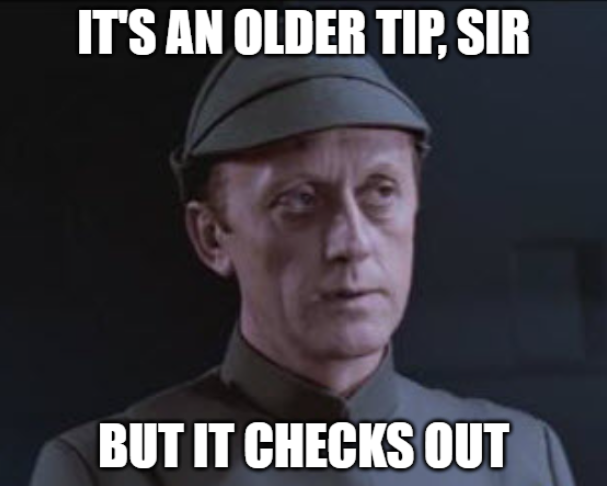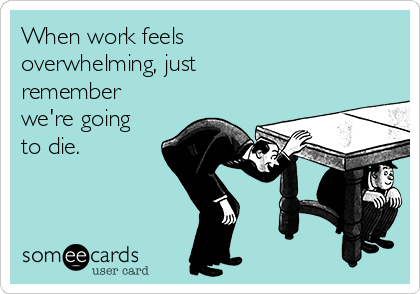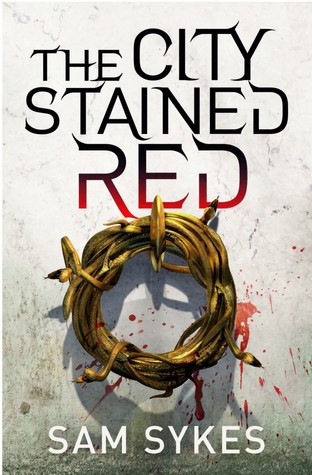I wrote about writer's block way back in the beforebeforetimes, but wouldn't you know I actually learned new things in the fourteen years since? Not just about writing but also about myself.
In this post, I'm going to talk about some common causes of writer's block and what you can do about it.
But first, let's define terms.
What is writer's block?
Writer's block is when you are trying to write but can't.
Maybe you're staring at a blinking cursor and waiting for words that won't come. Maybe you're writing and deleting the same sentence over and over and over again. Or maybe you're scrolling Instagram or washing dishes or doing something else that, sure, maybe you want to do, but it's not what you're supposed be doing right now.
Writer's block can look like a lot of different things, but it often has common causes. The solutions below might not be easy (if they were, you wouldn't need this post!), but hopefully they can help you trust your process. And trusting yourself is the real way out.
So, what's the reason for your block? I know of three big ones:
- You don't know what happens next.
- You're afraid that what you write won't be good enough.
- There is a legit physical or mental reason you can't write.
Let's take a quick look at each of these.
Reason #1: You don't know what happens next
You might think you do. You might know what happens two or three scenes—or even just two or three paragraphs—from now, but you don't know how to get from here to there. Or maybe you wrote yourself into a corner and you literally don't know where to go from here.
First off, know that this is perfectly normal. We've all heard of authors who sit down to write and the words come flowing out of them, but that's far from typical. (I'm not even sure it exists.) Every writer I know has had to, at some point, stop and figure out what happens next.
SOLUTION: Brainstorm. What this looks like depends on your story and your process, but here are some of the things I do:
- Make a list of whatever ideas pop into my head. I don't judge them. I just add them to the list.
- Outline the next chapter/scene/paragraph.
- Take a long walk or a shower or something similar. Let my mind wander.
- Imagine my story is a D&D game and my characters are the players. What crazy things would my players try next?
- Write down what each character in the scene wants. Sometimes I discover that I don't actually know!
What works one time might not work the next, so try different things and see what sticks.
But what if you do know what happens next? What if you just don't know how to write it?
Reason #2: You're afraid that what you write won't be good enough
Sometimes, you can't think of the right words. Or maybe you can't stop thinking how hard this will be to revise later. Or maybe you're worried that the story isn't what you hoped or is a waste of time to begin with.
Again, these are perfectly normal things to feel. Even the most experienced authors struggle with these feelings (while writing books that later become bestsellers). They'll often tell you the same things.
SOLUTION: Give yourself permission to write garbage. Because there are two important truths to remember here:
- You cannot be objective about what is good or bad while you're writing it.
- Anything you write can be made better later. Anything.
Turn off the internet and stare at the page. Make yourself write one word—any single word. Then write one more—just one. Keep going like that until you have a sentence. Then do it again. Don't delete them! You can do that tomorrow!
You might also trick yourself with "temp text"—words that you know won't be in the final draft but that convey enough of the story to move forward. [I like to put mine in square brackets. It tricks my anxiety brain into not editing it, and it's easy to search for later.]
But what if the reason you can't write goes beyond "I don't know what to say" and into "I literally cannot make myself write"?
Reason #3: There is a legit physical or mental reason you can't write
Sometimes writer's block isn't about writing. Sometimes it's caused by a physical need, like you're hungry or tired. Or there might be an emotional need instead. Even if you have no fear of bad words and know exactly what happens next in the story, depression, anxiety, and burnout (among other things) can make it impossible to write.
Whether the block is physical, emotional, or something else, the solution is the same.
SOLUTION: Take care of yourself. Eat a snack. Take a nap. Meditate. Exercise. Listen to your body and give it what it needs. And if your body's needs are ongoing—like, something a simple snack won't fix—take stronger measures:
- Change your writing schedule to a better time for your body or mind.
- Readjust your writing goals to put less pressure on yourself.
- Seek professional help.
That last item is for me, because my fear is far beyond "My words aren't good enough." It often becomes "If my words aren't good enough, then my story won't be good enough, and then I won't be good enough, and then every bad thing I believe about myself will be true."
Of course, I didn't know that until I sought counseling (not for writing, but my writing fears came up). Sometimes, we need help, and that's okay. I still struggle to make myself write, but at least now, I'm more aware of the actual problems I need to address.
Whatever the cause of your writer's block, and whatever emotions you might feel, know that those feelings are normal and okay to have. They don't make you any less of a writer.
If anything, they prove you are one.




















